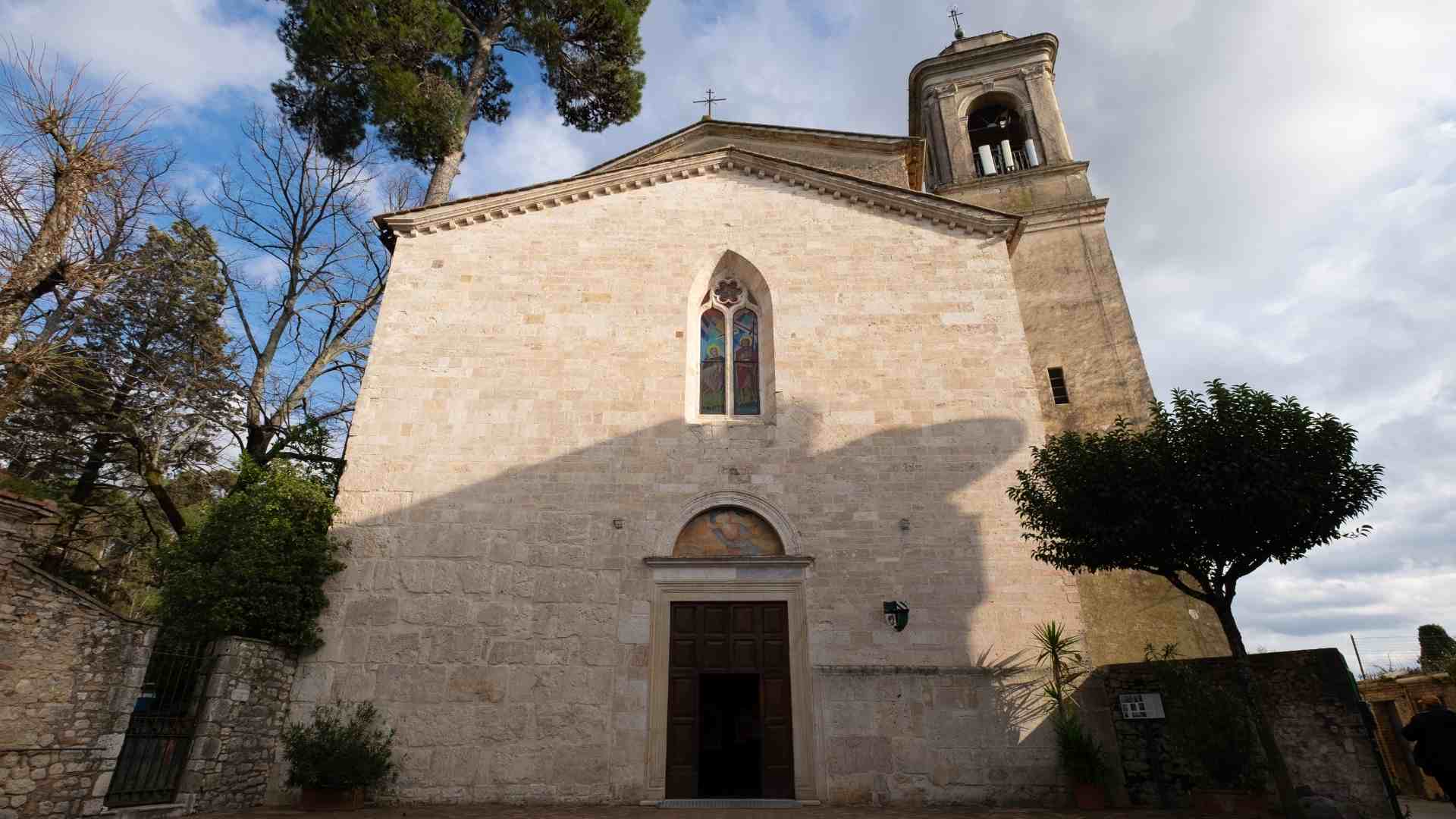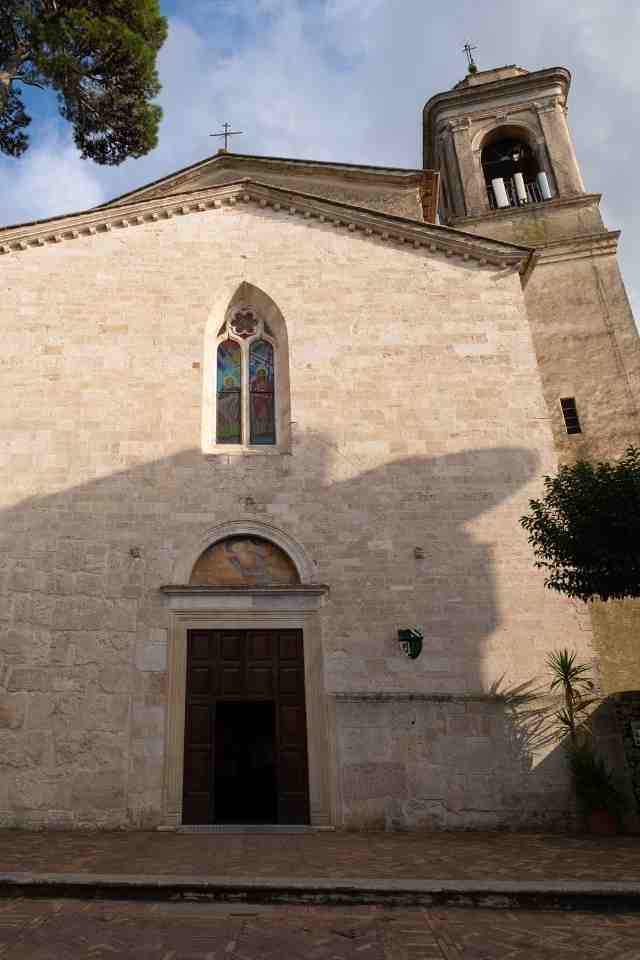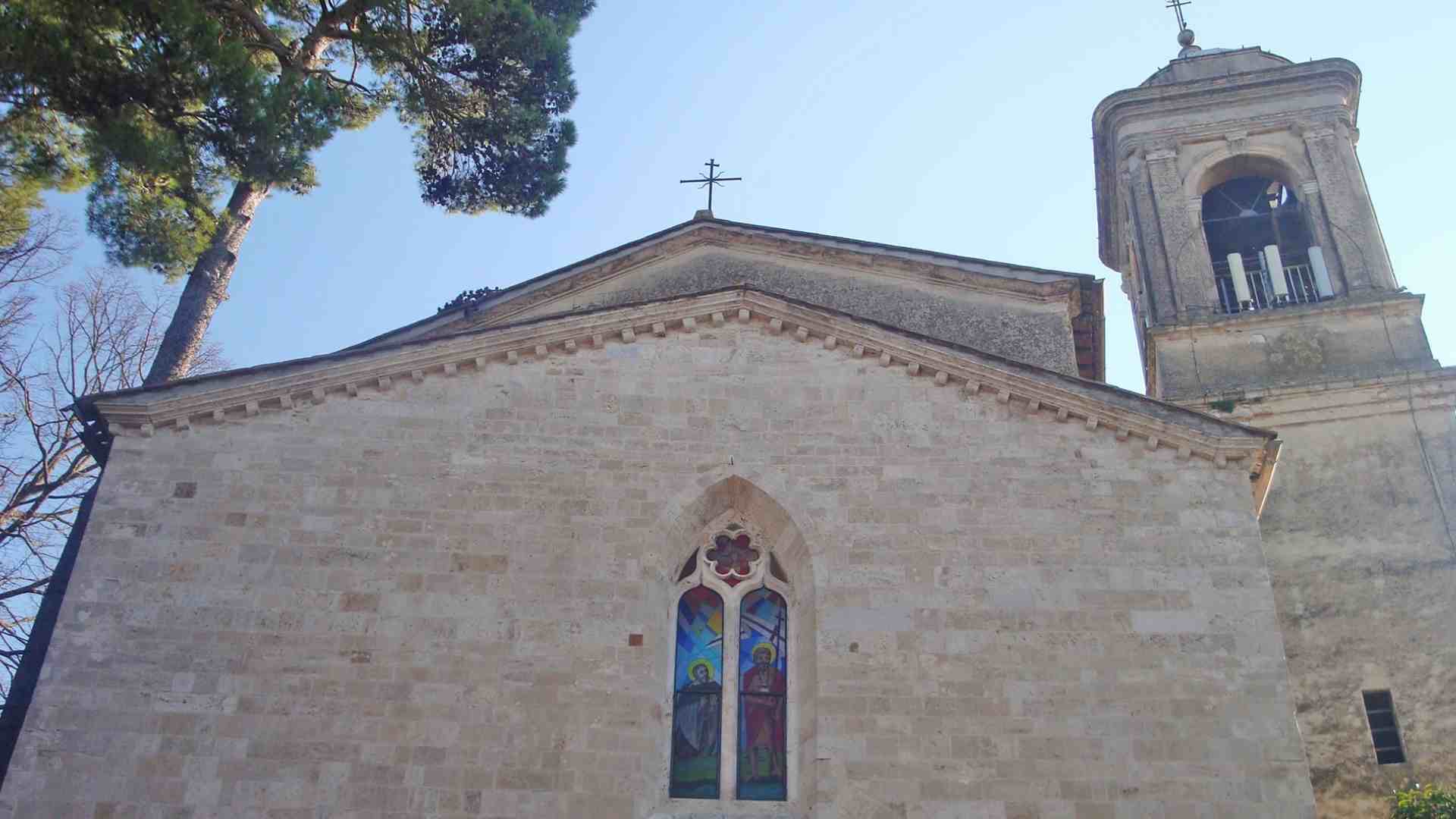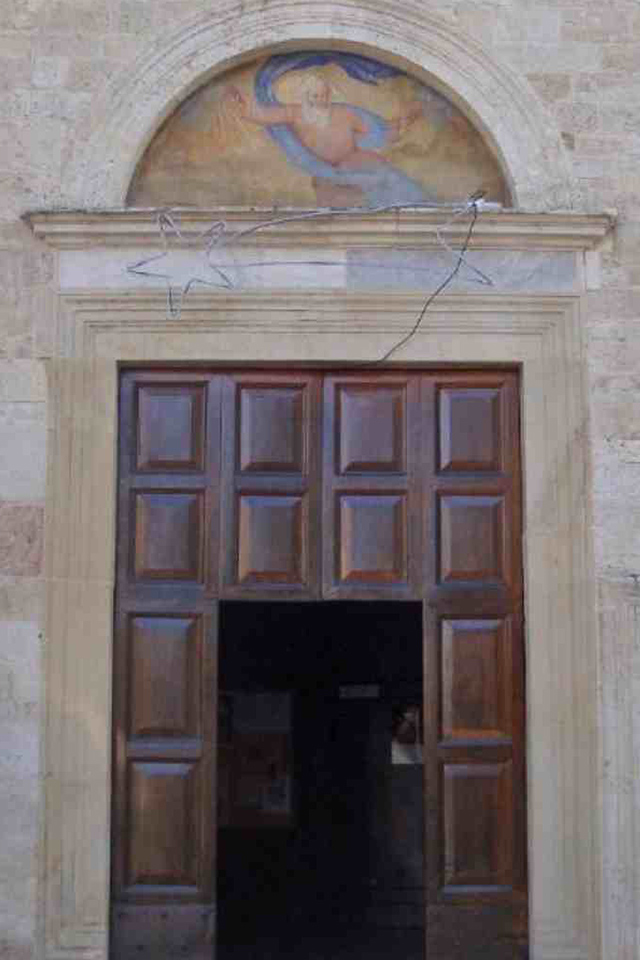
punto di interesse
point of interest


An ancient tradition tells about that the bishop of Terni and Carsuale Volusiano , wanted to build a cathedral in honor of Santo Proloco, bishop as well of , Terni, after his martyrdom in 310 Ad.
The same building was rebuilt around the X century to accommodate the remains of San Gemine, Patron of San Gemini.
Apart from the references of the tradition, we don’t know for sure the year of the foundation of the Church of Santo Gemine, Duomo of San Gemini.
It’s easy and severe architecture, recalls elements which are from the XIII century, like the window in late Gothic style of the facade.
Between the 1817 and the 1847, the engineer Livoni, seems, even with the advice of Antonio Canova – who stayed in San Gemini in 1813 and whose is dedicated a street and the palce where he lived- had revisited the entire structure.
The interior of the church, in neoclassic style with hints in-baroque, preserves four beautiful paintings from the XVII century:
Under the major altar the urn with the remains of Santo Gemini, Patron of the village, found in 1775 inside a niche adjacent to the sacristy and the parchment which attest the discovery.

An ancient tradition tells about that the bishop of Terni and Carsuale Volusiano , wanted to build a cathedral in honor of Santo Proloco, bishop as well of , Terni, after his martyrdom in 310 Ad.
The same building was rebuilt around the X century to accommodate the remains of San Gemine, Patron of San Gemini.
Apart from the references of the tradition, we don’t know for sure the year of the foundation of the Church of Santo Gemine, Duomo of San Gemini.
It’s easy and severe architecture, recalls elements which are from the XIII century, like the window in late Gothic style of the facade.
Between the 1817 and the 1847, the engineer Livoni, seems, even with the advice of Antonio Canova – who stayed in San Gemini in 1813 and whose is dedicated a street and the palce where he lived- had revisited the entire structure.
The interior of the church, in neoclassic style with hints in-baroque, preserves four beautiful paintings from the XVII century:
Under the major altar the urn with the remains of Santo Gemini, Patron of the village, found in 1775 inside a niche adjacent to the sacristy and the parchment which attest the discovery.

The figure of Yemin, the Gemine (or Gemino) is linked from some medieval stories: a memory on the Saints Gemini and Gemulo Liber Notitiae Sanctorum Mediolani of Goffredo Bussero of the XIII century, and a Vita S. Gemine by an anonymous author that was recovered by the Jesuit Bernardino Coccovagini in 1686 and accredited as a copy made in 1668 by the Minor Friars of San Gemini.
The cornerstones of history of this benedictine monk are his Syrian origin and, a little bit like the Saint of Assisi, his conversion to the Christianity after he was a man-at-arms.
The retreat to the hermit life and then the arrival in Italy with the accomodation in the monasteries of San Paterniano, of Fano and of Casventum in San Gemini.
At the end the trip to Ferento, 6 kilometres far from Viterbo where, rejected by the people of the city, takes refuge in a cave where he died in October 9, 815.
The tradition tells that, for his example, the people decided to call the city in his honor: San Gemine.
Interesting the hypothesis that the Santo Geminus (=Double) can be linked to a tradition more anciente. Tradition which we can find inside the two twins temple of Carsuale (link al PDI) more times ascribed to Castore and Polluce, to the same Church of Cosma and Damiano – saint doctor always in the Archeological Area of the roman town hall , and maybe that cult for the waters (Esculapio and the daughter Igea) which connects the places of San Gemini and Ferrento.

The figure of Yemin, the Gemine (or Gemino) is linked from some medieval stories: a memory on the Saints Gemini and Gemulo Liber Notitiae Sanctorum Mediolani of Goffredo Bussero of the XIII century, and a Vita S. Gemine by an anonymous author that was recovered by the Jesuit Bernardino Coccovagini in 1686 and accredited as a copy made in 1668 by the Minor Friars of San Gemini.
The cornerstones of history of this benedictine monk are his Syrian origin and, a little bit like the Saint of Assisi, his conversion to the Christianity after he was a man-at-arms.
The retreat to the hermit life and then the arrival in Italy with the accomodation in the monasteries of San Paterniano, of Fano and of Casventum in San Gemini.
At the end the trip to Ferento, 6 kilometres far from Viterbo where, rejected by the people of the city, takes refuge in a cave where he died in October 9, 815.
The tradition tells that, for his example, the people decided to call the city in his honor: San Gemine.
Interesting the hypothesis that the Santo Geminus (=Double) can be linked to a tradition more anciente. Tradition which we can find inside the two twins temple of Carsuale (link al PDI) more times ascribed to Castore and Polluce, to the same Church of Cosma and Damiano – saint doctor always in the Archeological Area of the roman town hall , and maybe that cult for the waters (Esculapio and the daughter Igea) which connects the places of San Gemini and Ferrento.

Is tradition now that from the last saturday of September until the second sunday of October, San Gemini relive the atmospheres of middle-age thanks the Rione Rocca and the Rione Piazza that will compete for the Giostra dell’Arme.
Different events that are following each other, the reopen of the cantinee and the possibility to taste the legendary Picchiarelli of San Gemini, and the historical re-enactments, like the suggestive “pasatura dei ceri” , which culminate the October 9 withthe Celebration of the Patron.
discover all the points of interest of the village
Information, appointments and travel proposals on:
The Progressive Web App is part of the project “Le Terre dei Borghi Verdi”, realized in collaboration and with the contribution of Regione Umbria – Assessorato al Turismo
©2021 Le Terre dei Borghi Verdi
Le Terre dei Borghi Verdi
Welcome in Southern Umbria,
where the slowness becomes value
Information, appointments and travel proposals on:
The Progressive Web App is part of the project “Le Terre dei Borghi Verdi”, realized in collaboration and with the contribution of Regione Umbria – Assessorato al Turismo
©2021 Le Terre dei Borghi Verdi